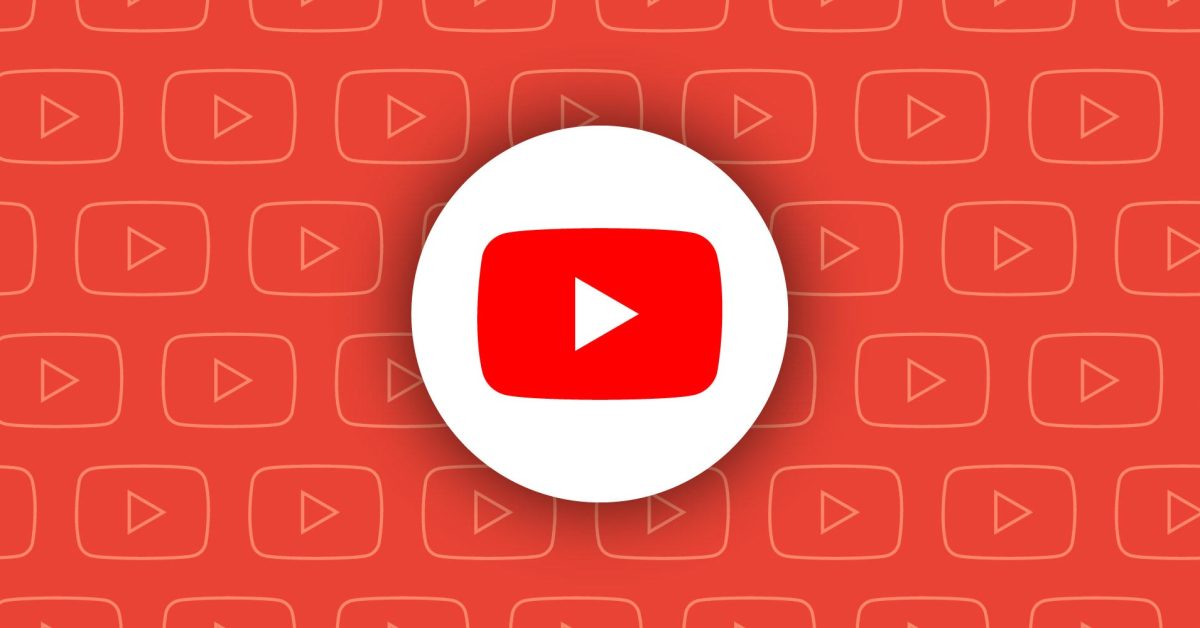Following the United States in July, YouTube Premium’s international price increase is starting. The Google video is rolling this out slowly across Europe, Asia-Pacific, and South America.
As of November 1, YouTube Premium is seeing an international price increase in Argentina, Australia, Austria, Chile, Germany, Poland, and Turkey. This applies to individual, family, and student plans for YouTube Premium and YouTube Music Premium.
In Australia, YouTube Premium Individual is now A$16.99 and is said to be the “first ever price increase for your subscription” (for the country). For those currently paying a lower rate, YouTube is continuing that pricing for “at least three extra months.”
Existing subscribers will start to see the new pricing with their next billing cycle. In announcing via email this morning, YouTube says it doesn’t “make these decisions lightly” and says the price increase will allow it to “continue to improve Premium and support the creators and artists you watch on YouTube.”
There we go, this is why they are fighting adblockers.
Gotta love how these companies always try to make the price increases sound reasonable - nay, laudable.
“Giving us, a major corporation, more money will TOTALLY benefit the common folk who supply us with all of our product.”
For all those that don’t like the taste of Googles boot, FreeTube has been nice and has the added benefit of Google knowing even less about you. For all those that want to contribute to their favorite creators, that’s why things like Patreon exist. For the rest, enjoy your meal!
If you use YouTube on Android, there’s NewPipe, PipePipe, LibreTube and Clipious. Unfortunately they’re all a bit hit-or-miss, though.
If you have an Android TV, there’s SmartTube. Its built-in updater is a little iffy, but otherwise it works amazingly.
lol imagine paying for youtube
Given the sheer amount of YouTube I watch and my awareness that things do actually have costs, I really don’t mind it, though I do wish it were a bit cheaper.
They aren’t starving my man.
If it wasn’t ridiculously expensive I might.
If it wasn’t run by Google I might
It’s more than worth it for me. YouTube is my main source of video and audio content.
Yeah some of the money goes to Google, but any major paid commercial streaming service is going to give money to a giant corporation.
Well lets see how worth it it is in 5 years when prices quintouple for an online video hosting website where the major corporation is the one milking both users and creaters for every last penny.
Well my second place streaming app is Plex so I always have a back up plan, lol.
I pay 8€/month for the family version thing which 4 people use. And 55% of that goes to creators. Dunno, not that terrible imo.
How? I’m sitting at €22 for the family version as far as I know….
One of the few advantages of being born in a poorer country. Certain subscriptions are cheaper.
Fair enough…
VPN and buy a plan from a country with cheaper plans
Do your creators also have ads in their actual clip? Eg sponsor?
Most don’t, no
Imagine expecting extremely expensive infrastructure used to serve you videos to be completely free
Imagine that Google, which harvests everything you do and sells that data to the tune of hundreds of billions of dollars, wants you to actually pay them to steal your data.
News flash your weird browser history isn’t worth much.
Myself, probably not.
Collectively, it absolutely is.If it wasn’t, Google would be the giant it is.
Image spending billions buying a platform that can’t pay for itself.
When lending was cheap, thats exactly what they did. Venture capital was aplenty but times have changed.
YT was always operated at a loss, no amount of premium memberships were ever going to pay for it. The business model, and the main reason why Google bought it, was always to profile and broker personal data. That has always been the deal and has always been profitable for them. I don’t see why I should give them money on top of that.
Google’s business model literally disincentivizes selling (brokering) personal data. I’m so tired of this misconception. The business model is built on selling targeted advertisements. Google wants to keep this data to itself because it gives them a competitive advantage in the ad space.
Selling your data would give competitors power in the marketplace. So yes, Google collects data and uses it, but no, Google does not sell your data. It sells targeting BASED on your data.
Very different, regardless of if it is any better.
Yes, it’s a “lies to children” (Sir Terry Prachett, The Science of Discworld)
They collect the data and then promise ads will get superior click through rates through precise targeting provided by said cash.
Still, they collect enough, and serve ads all over the web that I’ve never clicked on before ad blockers, and I’m not going to start now, and they still have a trillion dollars on hand.
Because things like GDPR make the data collection and sale business not as lucrative anymore, and every day how many petabytes of extra video gets uploaded? I work with cloud providers every day and storage isn’t cheap.
Good thing Google is among the richest companies ever with a theorized bank of over a trillion dollars.
Unfortunately for profit companies don’t care how much is in the bank. Publicly traded companies only care about making number go up so people don’t dump their shares.
Imagine bundling a dozen other subscriptions into one all-or-nothing payment so people get terrible value for money.
TV transmitters are expensive. Did you feel guilty when you muted the ads or left the room?
Nothing stopping you from muting the ad on your YT video or leaving the room…
But I agree with your first point, outside of channel memberships, I’d like to choose how the money goes to creators to an extent.
The point is that there’s a continuum of ad interaction.
At one end, you have that patent drawing requiring you to stand up and yell ‘McDonalds’ to continue.
At the other, you have things like AdNauseum that actively seek to poison the ad well, and probably more extreme solutions still in the theoretical stages.
YouTube ads are close to the first scenario - one must actively monitor the device and hit ‘skip ad’ when the button appears, or the ads will continue for several minutes. Simply muting or leaving the room are not practical solutions because the delay in the content is much longer.
Courts have already legally established that people have a right to record live TV, play it back at a different time, and fast forward/skip through ads, including I think using automation to do so. How does that differ from web ad blockers?
In my head canon Google died the day they removed the don’t be evil and became Gargle.
Fuck Gargle!
“How do I dispose of this lard?” “I have no idea, just Gargle it”








